In this article I will explain everything you need to know about coconut water, and if you can drink it on OMAD?
You cannot drink coconut water on OMAD because it significantly raises plasma glucose concentrations, therefore will trigger the pancreas to release insulin. Fresh coconut water contains approximately 4-5 grams of sugar per 100g, depending on the weight and age.
However, drinking coconut water during your one meal a day can be a really good idea because it contains relatively high amounts of vitamins and minerals, comparing to regular water (source).
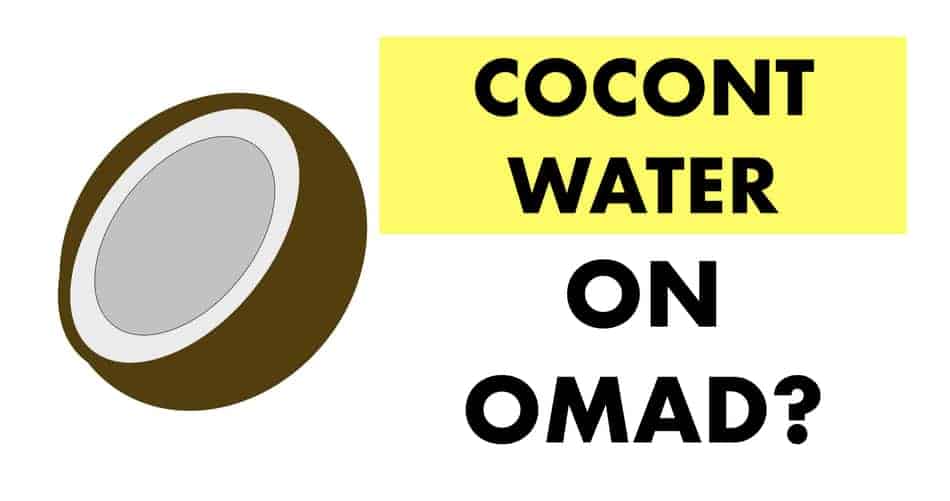
Does Coconut Water Break A Fast?
Coconut water breaks fast because it contains a relatively high amount of sugar, comparing to regular water. Breaking a fast means switching the body from the fasted state into a feeding state. It can occur during calorie intake from food or high-calorie beverages.
But it all comes down to the amount. In fresh coconut water, you have 4-5 grams of carbs per 100g. So A one-cup serving of coconut water will give you about 10 grams of carbohydrates, assuming this is the natural, unflavored coconut water, straight from the coconut.
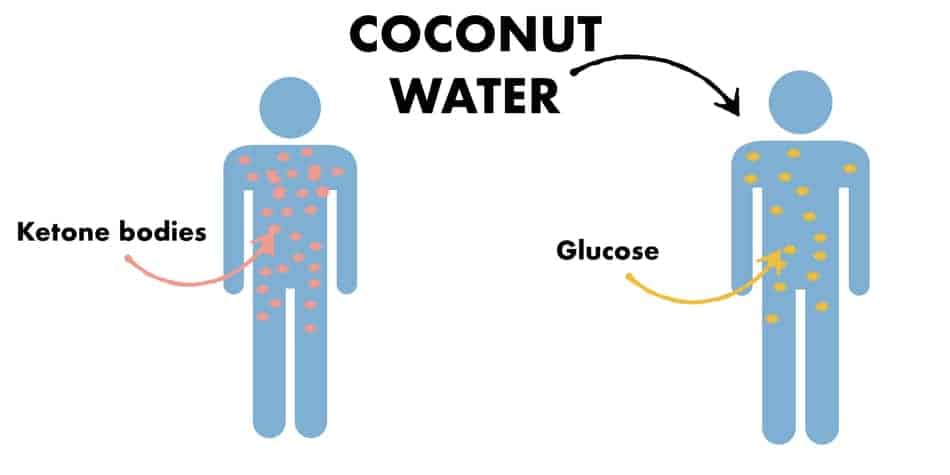
Obviously, for the coconut water products that are available in the market will have a higher amount of sugar.
So taking a step back, from the surface you may think that 3-4 grams of carbs is not much. But remember that nobody ever drinks just 100g. It’s usually much more than that. So in one coconut, you can find anywhere from 300ml to 700ml, depending on the country of origin, size, weight, and age.
So now if you’re drinking 500-700 ml of coconut water that’s like 20-25 kcal from pure sugar. Some brands of coconut water may promote low-calorie properties, which is true, comparing to juice or soda, however its still enough to break the fast.
Coconut Water Benefits
Overall, the water from a coconut, also known as (Cocos nucifera L.), has tons of nutritional benefits and therapeutic properties. It contains plenty of biologically active compounds like l-arginine, ascorbic acid, calcium, magnesium, and potassium.
It’s been shown that it decreases hepatic lipogenic enzyme activity, and at the same time improves lipoprotein lipase activity (source). This basically means it has a hypolipidemic effect, and it can lower the levels of serum total cholesterol and triglycerides.
It is also been shown to improve hepatic bile acid and fecal bile acids, which leads to a lipid-lowering effect. In one study (done on rats) they’ve noticed similar lipid-lowering activity comparing to the drug lovastatin (source).
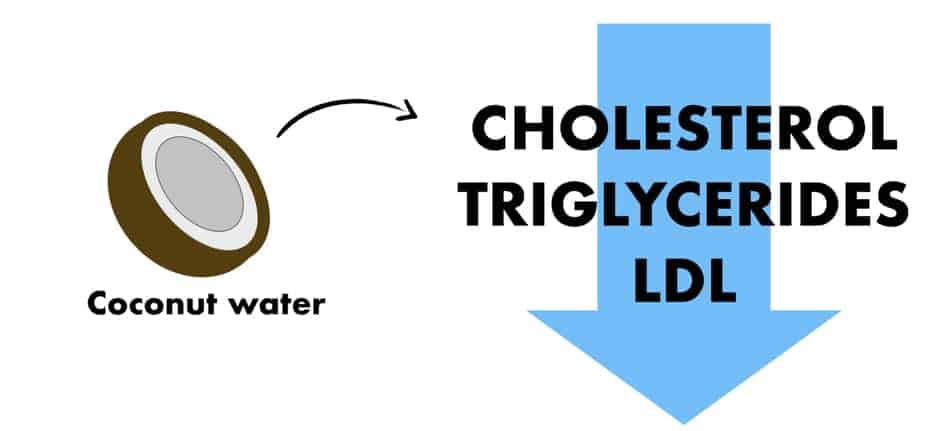
Another exciting study on people with hypertension showed that drinking coconut water reduced systolic blood pressure by 71%, and diastolic pressure by 29% (source).
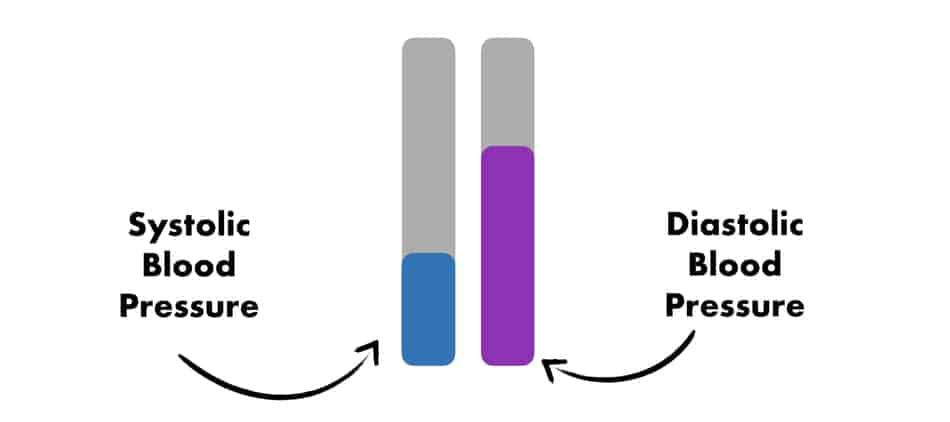
However, despite those findings, coconut water does contain some sugar and because of that, it is been shown to increase glucose levels in the blood, too. It doesn’t have a significant amount of sugar (only 4-5g per 100g) but it’s enough to trigger an insulin spike.
While doing OMAD, it is important that you have access to zero-calorie beverages because they will ensure that you won’t be “kicked out” from the ketosis. One of the examples is diet soda. Despite its unpopular fame, it’s been proven that diet sodas don’t spike up insulin, therefore help you stay in ketosis.
Does Coconut Milk Break A Fast?
Coconut milk will break a fast because it contains sugars that trigger an insulin response. Any food or beverage that has carbohydrates will trigger the pancreas to release insulin in order to regulate blood sugar levels. This process will switch the body from a fasted state into a feeding state.
The difference between coconut water and coconut milk is that coconut water is unprocessed. It comes directly from the endosperm tissue of coconut. When the fruits are ripe, the inside of the coconut is mainly liquid.
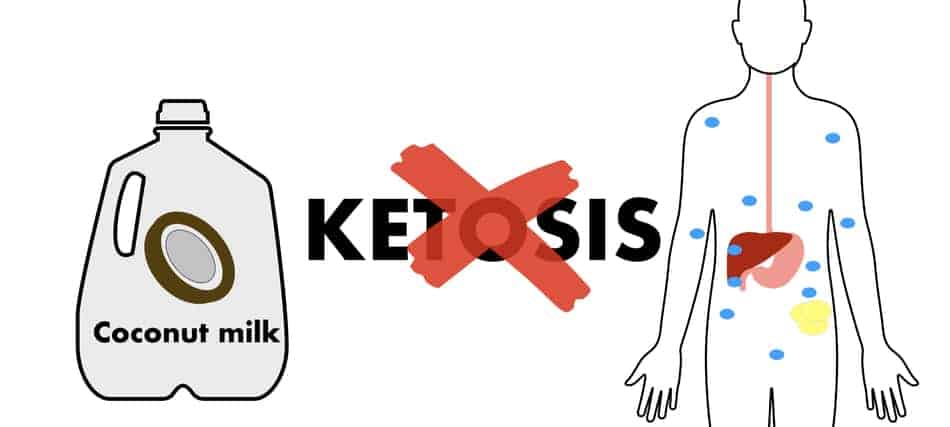
However, as the fruit mature, during the process called cytokinesis, peripheral layers start to harden and create white flesh, popularly called coconut meat. Coconut water is the liquid solution that’s been left from the process.
On the other hand, coconut milk is a liquid extract made from grating the solid endosperm (white flesh) with or without the addition of coconut water.
Fresh coconut milk contains about 54% of water, 35–37% of fat, 2–4% of proteins, and 2–5% carbohydrates. Some of the manufactures also add extra sugar. One of the key ingredients in coconut milk is coconut oil, which is a high source of vitamin E and polyphenols. However, according to research, there is no significant difference from regular butterfat on health (source).
On the other side, coconut oil, which is an extract from coconut kernel (mostly of medium-chain fatty acids) doesn’t trigger an insulin response and has lipid-lowering properties.
Coconut Water During OMAD
Drinking coconut water during fasting time while on OMAD can slow down your progress, even if coconut water doesn’t have many calories. If you drink it throughout the day it will stop the ketosis process and start to use calories from sugar, rather than the calories from stored fat.
The best option to keep your satiety high, not get out of ketosis and still enjoy the benefits of a coconut while doing OMAD is to have coconut oil. Coconut oil happens to have medium-chain fatty acids, therefore, the metabolism of coconut oil is much different, comparing to the other fatty acids.
Medium-chain fatty acids are broken down almost immediately by enzymes in the saliva and gastric acid. They don’t require the activity of pancreatic fat-digesting enzymes, because they are absorbed directly from the intestines into the portal vein and sent straight to the liver.
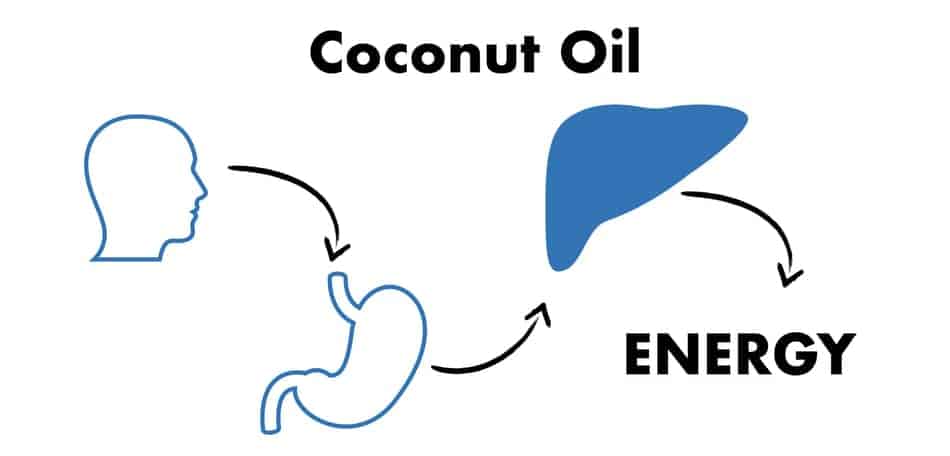
Long-chain fatty acids, which are combining with proteins to form lipoproteins, must enter the lymphatic system, bypassing the liver. As a result, lipoproteins circulate in the blood, their fatty elements are being discharged to tissues (source). This is called fat storage, as a part of an accumulation of fat in body tissues.
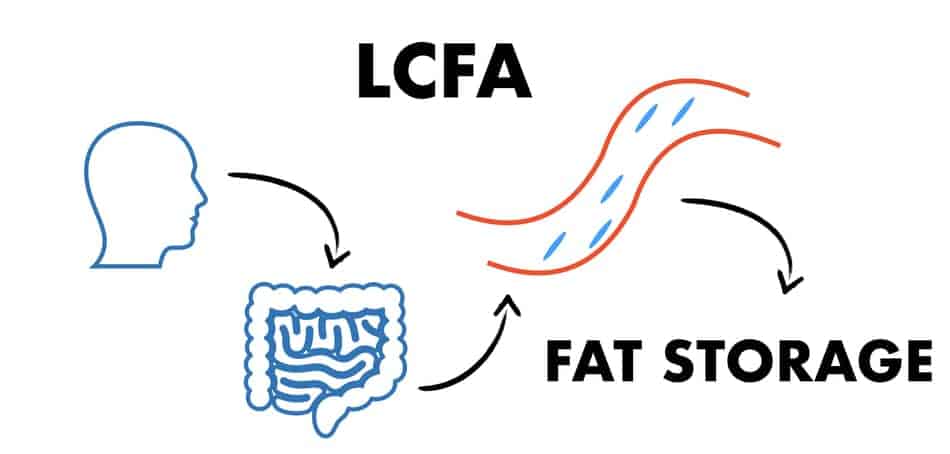
In other words, medium-chain fatty acids are less likely to end up as fat deposits, but being used by energy by the liver (source). Not only that.
In recent studies, coconut oil was shown to improve insulin sensitivity, lower cholesterol, and improved fat-free mass just after 8 weeks of 35g per day (source).
Conclusion
Drinking coconut water was associated with several health benefits, however, during OMAD (or any other type of intermittent fasting protocol) it is not recommended to consume coconut water due to insulin release. Any carbohydrate food or drink will trigger the pancreas to release insulin to regulate sugar levels.
Instead, a simple method to improve satiety, and still enjoy the benefits of coconut, without unnecessary sugar is the small daily consumption of coconut oil. Coconut oil is a rich source of antioxidants, can be converted into ketone bodies, and is been popularly used as a lipid-lowering method.
Go Further with OMAD
This article is part of the What To Drink On OMAD.
In the following articles, I show you everything there is to know about drinks and how to stay hydrated with OMAD for the best results.
Learn more: Click here to read the guide about can you drink alcohol on omad
